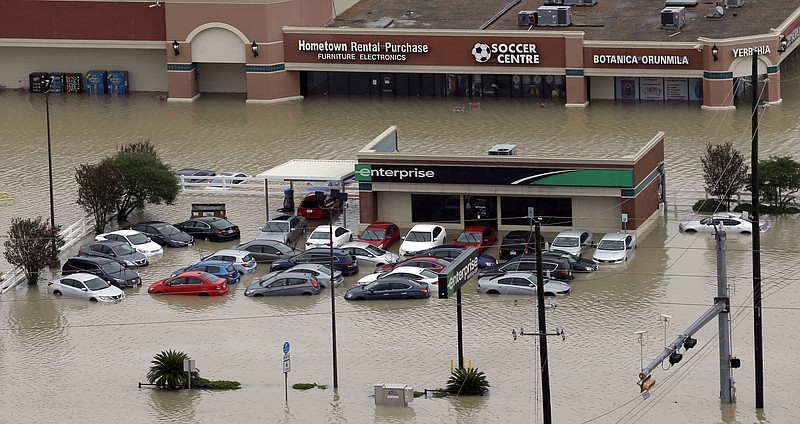Q. How do consumers protect themselves from purchasing automobiles flooded in Hurricane Florence and now current storm Michael?
A. CARFAX says half of vehicles damaged in floods end up being resold, some with the damage disclosed but many fraudulently. The Tennessee Motor Vehicle Commission warns that some Hurricane Florence vehicles will make it into the Tennessee used car market. That will now be true of vehicles flooded in Hurricane Michael.
Sellers may be unscrupulous dealers or private owners who don't have insurance to repair or replace a flood-damaged vehicle and hope to pass the problem off to an unwitting buyer. They may try to sell the vehicles before databases that track the history of vehicles are updated. They may also try to take advantage of the fact that no national standards for titling vehicles exist by moving a flood-damaged vehicle to another state to get a clean title.
Tennessee and Georgia law makes a clear distinction between vehicles damaged in a freshwater flood, which may be repairable and sold as rebuilt vehicles, and vehicles declared a total loss because of saltwater damage. They cannot be rebuilt or retitled in Tennessee or Georgia. Saltwater-damaged vehicles can only be dismantled and used for parts. Many of the Hurricane Florence vehicles will be categorized as saltwater-damaged. Vehicles damaged in the Florida and Alabama gulf coast as results of Hurricane Michael will also fall in this category.
Experts say repairing a vehicle that has sustained anything beyond very minor damage in a flood is a risky venture. Even low levels of water damage can harm computer and electrical systems. Saltwater damage is particularly bad because it can continue to corrode a vehicle's body and operating components after it's been cleaned and repaired.
Check out a dealer with the Better Business Bureau. Be even more cautious than usual buying a vehicle online or from a private seller over the next few months. Ask to see the title of a used vehicle and check the date and place of transfer to see if it came from a flood-damaged area. Be wary if the title is stamped "salvage" or appears to have been altered.
Get a vehicle history report. A full report may involve a fee, but CARFAX and the National Insurance Crime Bureau have free services for checking to see if a vehicle has been reported as salvage or flood-damaged.
The BBB recommends you get a pre-purchase inspection by a trusted mechanic anytime you buy a used vehicle. The extra cost now may save you thousands of dollars in the long run if major problems are discovered. BBB advises if you're going to do the inspection yourself, follow these additional tips to be sure you don't get stuck with a flood-damaged vehicle:
» Check all gauges to make sure they're accurate and look for signs of moisture.
» Test all the equipment several times to make sure everything works.
» Flex some wires under the dash to see if they bend or crack. Wet wires become brittle upon drying and can crack or fail at any time.
» Check the hard-to-reach interior of the trunk and glove compartment and beneath the seats and dashboard for signs of mud, rust or water damage.
» Look for discolored, faded, or stained upholstery and carpeting. Carpeting that has been replaced may fit too loosely or may not match the interior color.
Visit www.bbb.org for consumer advice on other scam and charity donation fraud activity that will surface as results of hurricane Michael.
Jim Winsett is president of the Better Business Bureau in Chattanooga.

